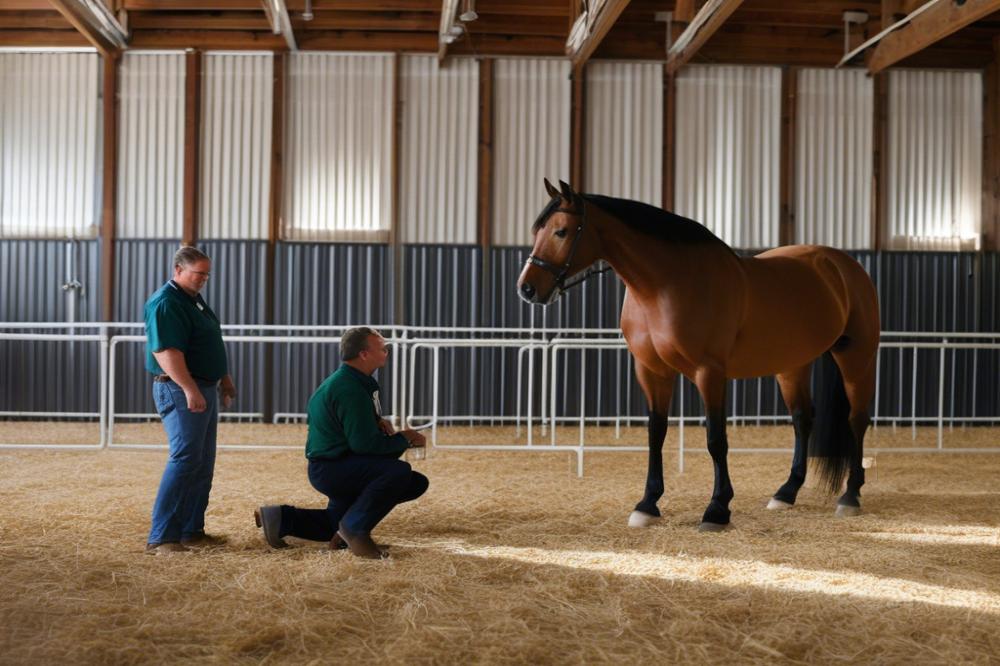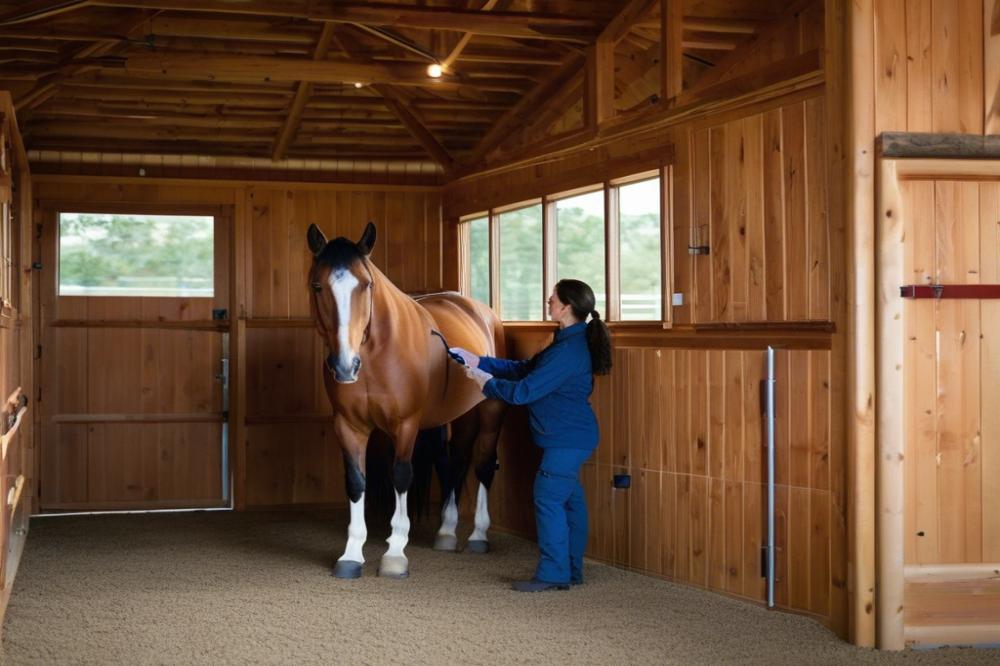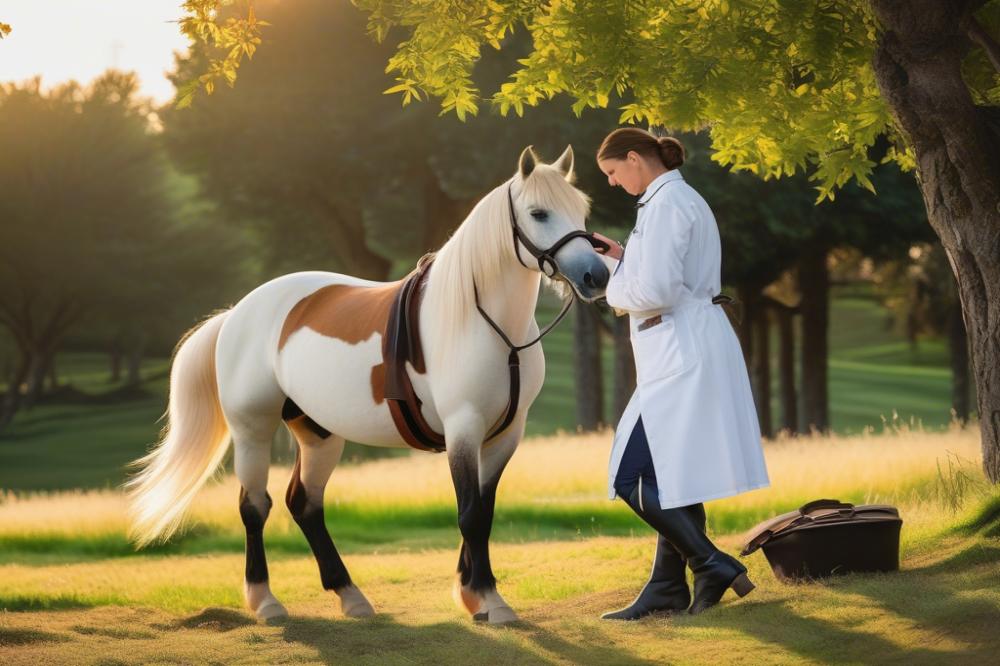Importance of pre-purchase veterinary checks
Buying a horse is an exciting venture. However, it’s crucial to remember that this involves more than just the thrill of ownership. A sound investment requires knowing the animal’s health status, which is where pre-purchase veterinary checks come into play. These evaluations can help uncover any underlying health issues that may not be visible during a casual inspection. A vet can reveal hidden problems, saving potential owners from unexpected costs and heartbreak later on.
First-time horse owners might find the process daunting. Many aspects come into consideration, like breed, age, training, and temperamental traits. Among all these considerations, ensuring that the horse is in good health stands paramount. A healthy horse contributes not only to a reliable companionship but also to a fulfilling experience that lasts for years.
This article aims to guide those new to horse ownership through the critical checks needed before making a purchase. We will delve into the essential health evaluations and what to expect during the process. Understanding these elements fosters confidence in choosing the right horse. Knowledge is power, especially when it comes to such a significant commitment. By arming themselves with the right information, prospective owners can embark on their journey with a clear mind and a sound heart.
Understanding Pre-Purchase Veterinary Checks

Pre-purchase veterinary checks are essential evaluations done before buying a horse. Their primary aim is to assess the horse’s overall health and soundness. Buyers often want reassurance that the animal is free from serious medical issues. Such examinations can save potential owners from costly surprises later on.
Confirming an equine’s health before making a purchase cannot be overstated. Many factors contribute to a horse’s fitness for its intended use. Buyers may envision riding competitions or leisurely trails. A veterinary check helps unveil any hidden problems that could hinder those plans. Investing in this examination spreads peace of mind. A sound decision today paves the way for a fulfilling relationship with a new companion.
Common Components of a Pre-Purchase Exam
A pre-purchase exam includes a variety of components. Typically, the veterinarian will start with a physical examination. They assess the horse’s eyes, ears, and skin for any abnormalities. The heart and lungs are also checked to ensure proper function. Flexion tests often follow to evaluate joint health and mobility.
Veterinarians may also recommend radiographs or X-rays. These images help identify issues within bones and joints that might not be visible externally. Blood tests can uncover underlying health concerns, such as infections or parasites. It is not uncommon for a thorough lameness evaluation to take place as well. Each step delivers important insights about the horse’s condition.
Understanding these components informs buyers of what to expect during the process. Knowledge equips potential owners with the tools needed for informed decisions. A detailed examination can prevent future heartbreak and financial strain. For anyone considering a new horse, this veterinary check is a vital step to take.
Key Aspects of veterinary inspection

A full veterinary inspection is essential when considering the purchase of a horse. It starts with a thorough health assessment. The veterinarian examines the animal’s overall condition, including its eyes, coat, and body weight. Checking for signs of illness involves looking for any visible abnormalities. An experienced vet can spot small issues that might go unnoticed by an untrained eye.
Lameness exams play a critical role during this evaluation. Movement issues can be subtle yet impactful. A vet will observe how the horse walks and trots, looking for any signs of discomfort. They may ask the horse to move in circles and on different surfaces. Any irregularities in gait could indicate underlying problems. Identifying such issues early on can save a buyer from future headaches.
Soundness assessment is another vital part of the inspection process. This assessment helps buyers determine if a horse is fit for its intended use, whether for sport, recreation, or work. A sound horse moves freely without pain. The veterinarian evaluates joint flexibility and muscle condition. If there are concerns regarding soundness, it may affect the horse’s performance potential.
Overall, these checks help buyers make informed decisions. An educated choice can lead to a successful and fulfilling experience with the new horse. Every detail from health to movement matters. Engaging the expertise of a qualified vet is key. Skipping this inspection might result in unforeseen challenges down the road.
Evaluating Horse Health History
Understanding a horse’s health history is crucial in making an informed buying decision. Firstly, reviewing vaccination history provides insight into the horse’s protection against various diseases. Vaccines play a vital role in maintaining a horse’s overall health. Ensure you ask for documentation that outlines which vaccines the horse has received and when. This knowledge helps you gauge the horse’s immunity and any upcoming vaccination needs.
Looking at past injuries and illnesses is equally important. Accidents may have long-term effects on a horse’s physical condition. Past injuries could result in chronic pain or reduced performance. Find out whether the animal has suffered any significant health issues, like colic or laminitis. These problems can affect the horse’s quality of life and performance levels.
Additionally, consider acquiring a comprehensive health record. This document should include detailed information about vaccinations, treatments, and any surgeries. It serves as a background check of sorts, reassuring potential buyers about the health of the horse. Knowledge empowers buyers to make better choices in the long term. It also helps in establishing a relationship with your new equine companion. By examining these records, you become an informed and confident owner.
Physical Health Checks: Hoof and Dental Considerations
The condition of a horse’s hooves directly affects its overall health. Neglected hooves can lead to a range of problems, including lameness and chronic pain. A thorough inspection reveals much about a horse’s care and maintenance. Regular trimming and shoeing are vital to prevent complications. Buyers should look for signs of cracks or unusual wear patterns. Healthy hooves are key to a happy and active horse.
Dental health is equally important. Routine checks help identify issues before they worsen. Problems like wolf teeth or uneven wear can impact a horse’s ability to chew and digest food properly. Over time, these issues may lead to weight loss or other serious health concerns. A good veterinarian will evaluate the teeth and recommend any necessary treatments.
Consider how hoof and dental health influences riding performance. A horse in discomfort may not respond well to commands. When it struggles to move freely, both rider and horse experience frustration. Moreover, proper dental care ensures that the horse can accept the bit comfortably. This connection can dramatically affect training outcomes and overall enjoyment.
Before purchasing, potential owners should prioritize these health checks. Awareness of hoof and dental issues plays a crucial role in long-term horse ownership. Investing time and resources into these areas can lead to a more fulfilling experience with the animal. Knowledge of hoof condition and dental needs enhances the bond between horse and rider.
Laboratory Tests and Their Importance
healthy horses start with thorough blood tests. These assessments often measure vital components in a horse’s body, including red blood cells, white blood cells, and various proteins. Common tests include a complete blood count (CBC) and biochemical profile. Each test offers insight into the overall health of the animal.
Laboratory results can reveal hidden health issues. For instance, low red blood cell count may indicate anemia, while abnormal white blood cell levels can point to infections. Biochemical profiles provide data on organ function, helping identify conditions like liver or kidney disease. Understanding these findings is essential for making informed decisions.
Interpretation of test results requires some knowledge. Not all irregularities signal severe issues. Some variations might relate to stress or recent vaccinations. A skilled veterinarian can explain what each result means, clarifying potential risks. Being aware of these implications allows prospective owners to address concerns before finalizing a purchase.
Decisions should be guided by this data. Buyers can negotiate better terms if serious health concerns arise. Optimal care hinges on early detection of problems. Routine laboratory checks contribute significantly to the overall well-being of horses. Buyers gain peace of mind knowing they are investing in a healthy animal.
Tips for First-Time Horse Buyers
Buying a horse for the first time can be both exciting and overwhelming. It’s essential to approach the process thoughtfully. Begin by researching what type of horse fits your needs. Different breeds and temperaments exist, so knowing what you want is crucial. Don’t rush into a decision; take your time to find the right match.
During the medical check, various questions need to be posed. Ask about the horse’s history, including previous injuries or illnesses. Inquire about vaccinations and dental care. These details are important for understanding the horse’s health. Ensure you also discuss feeding habits and any behavioral issues. This information gives insight into what potential challenges you may face.
Choosing the right veterinarian is a vital step. Look for one with experience in equine medicine, particularly with the breed you’re considering. A good vet should be able to provide references or examples of prior work. If possible, find a veterinarian who has worked with the seller before. This connection might facilitate sharing of detailed health information.
Additionally, while the vet conducts the examination, request a thorough assessment. Pay close attention to how the horse moves and behaves under evaluation. Ask the veterinarian if there are any concerns regarding soundness or behavior. This will help you avoid potential surprises later on. Remember, open communication with the vet can be invaluable.
When meeting the seller, be direct about your concerns. Seeking transparency about health records is reasonable. If the seller hesitates, think twice about proceeding. Trust is a significant part of this transaction. Look for red flags that could indicate a lack of care for the horse.
Don’t forget to bring someone along. A friend or an experienced horse person can provide a second opinion. This support can be comforting and insightful, making the process less daunting. It’s always useful to have another set of eyes during such a significant investment.
Summing It Up
Thorough veterinary inspection plays a crucial role in the journey of horse ownership. Ensuring that a horse is free from health issues can save both time and money in the long run. Neglecting this step can lead to unforeseen challenges that may impact the owner and the horse alike.
For those embarking on the adventure of owning a horse for the first time, understanding the importance of equine health is vital. A well-informed approach can foster a healthier relationship between owner and animal. New owners should never hesitate to ask questions and seek guidance from professionals.
Making educated decisions is essential for a rewarding experience. Potential buyers should take each step seriously, from initial assessments to final purchases. By placing equine health at the forefront, future horse owners can look forward to many years of companionship and joy. Ultimately, the right choices now will pave the way for a successful and fulfilling bond with their new horse.



